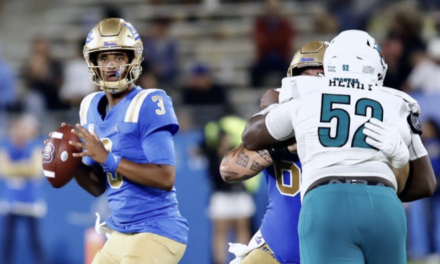Manny Otiko | California Black Media
The COVID-19 virus was discovered in December 2019 in Wuhan, China. To date, over 90 million cases have been recorded and more than 1 million Americans have died from the disease. After more than two years, COVID-19 doesn’t look like it’s going away.
President Joe Biden’s positive test last month for the disease illustrates that COVID-19’s transmissibility is an ongoing and persistent problem.
Biden, who was treated with the antiviral drug Paxlovid, isolated himself for 5 days and returned to work after testing negative. Then, a few days later, he tested positive again and went back into isolation until he tested negative about a week ago.
Because the President is vaccinated, he suffered mild symptoms. However, the rebound positivity he’s experienced shows more needs to be done to eliminate coronavirus.
While vaccines and past infections have enabled the U.S. population to develop what is described as substantial COVID-19 immunity and those who get sick have a number of effective treatments options, cases of people
being infected with new mutations of COVID-19 continue to be reported.
Dr. Ben Neuman, professor of Biology and chief virologist of the Global Health Research Complex, Texas A&M University, has studied the coronavirus and found that it’s constantly changing. That is a major reason people continue to be infected with the disease, he says.
During a recent Ethnic Media Services COVID-19 panel discussion with other medical scientists and researchers, Neuman said that people vaccinated against previous variations of the virus are not fully protected against the new variations. According to him, immunity to the current versions of the virus depends on how recently someone had been vaccinated.
“We are still vaccinating against the 2019 virus, and it is now late 2022. We have a problem……This is a virus that will continue changing,” he said.
Infections caused by Omicron sub variants have been reported to be not as dangerous as ones caused by earlier coronavirus strains, but they appear to be more transmissible.
If Neuman’s predictions are correct, by the time a vaccine is developed to fight the BA.5 subvariant, which is currently responsible for 85.5 % of infections in the US,
there will already be a new subvariant spreading the disease.
Neuman added that it is still important to protect yourself with masks and by washing your hands. While he has been vaccinated, he recently tested positive for the coronavirus while after being on an airline and failing to adhere to proper masking protocol.
Dr. Peter Chin-Hong, a professor of medicine at the University of California San Francisco, who specializes in treating infectious diseases, stressed the importance of continuing to follow preventative measures when he spoke during the panel discussion.
Chin-Hong pointed out that one problem with implementing a mask mandate is political will. He cited the example of Los Angeles County, which recently considered reintroducing a mask mandate because of rising infection numbers, but cancelled implementation when cases declined. Had the mandate been
imposed, the County sheriff said they would not enforce it which would have been problematic.
Unfortunately, the mask issue has become a political problem and few politicians want to take it on and risk the wrath of voters.
Dr. William Schaffner, a professor of Medicine in the Division of Infectious Diseases at the Vanderbilt University School of Medicine in Nashville discussed how prevalent the disease is and how strict adherence to preventative measures does not assure protection against mutations of the coronavirus.
Schaffner and his wife tested positive despite being fully vaccinated and were treated with Paxlovid and, unlike Biden, they did not experience a rebound occurrence of the virus.
Chin-Hong said the pandemic will eventually end. But that will only happen when we create the conditions where there are no new host bodies to develop variations of the coronavirus.
Currently, about 400 people are dying every day from COVID-19. That averages out to more than 100,000 deaths every year.
“Right now, we have too many deaths,” he said. “We shouldn’t accept that.”
Chin-Hong also predicted that in the future we might see an annual COVID-19 shot to ward off the disease.
Schaffner agreed and said that we should learn to manage the disease with vaccinations, medications and preventive measures.
“COVID will be with us for the foreseeable future,” he said.











